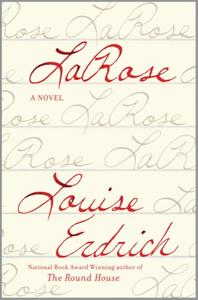
 Louise Erdrich (The Round House) has published 15 novels since 1984, many of them set in the mixed Ojibwe and white community around a fictional North Dakota Indian reservation. LaRose begins on the reservation border, a fraught legal and cultural boundary, and the property line between the Iron and Ravich families. The husbands, Landreaux Iron and Peter Ravich, are old friends; their wives are less friendly half-sisters. Their youngest children, five-year-old boys LaRose and Dusty, play together. One day, Landreaux is stalking a buck on the land between their houses. He has a clear shot at it, but when he fires, he finds he has somehow killed Dusty instead.
Louise Erdrich (The Round House) has published 15 novels since 1984, many of them set in the mixed Ojibwe and white community around a fictional North Dakota Indian reservation. LaRose begins on the reservation border, a fraught legal and cultural boundary, and the property line between the Iron and Ravich families. The husbands, Landreaux Iron and Peter Ravich, are old friends; their wives are less friendly half-sisters. Their youngest children, five-year-old boys LaRose and Dusty, play together. One day, Landreaux is stalking a buck on the land between their houses. He has a clear shot at it, but when he fires, he finds he has somehow killed Dusty instead.
Landreaux and his wife, Emmaline, have recovered from substance abuse and raised a strong young family by turning to traditional Ojibwe culture and religion. But as the reservation priest Father Travis observes, "some people would try their best but the worst would still happen." Guided by an old tradition, they bring LaRose to live with the Raviches as a replacement for Dusty. "Bad luck rarely stops with one occurrence. All Indians know that. To stop it quickly takes great effort, which is why LaRose was sent."
Slowly the two families develop new bonds, their members struggling with grief and anger, despair and love, in the context of the broader community: the elders who Landreaux visits as a home health aide, the church, hospital and schools, and Landreaux's crippled childhood friend, Romeo, who spies on everyone. He nurtures a poisonous resentment of Landreaux and searches for a way to destroy him.
LaRose is the fifth of that name in his family and the first male, with strong ties to the spirits of his ancestors. As in some of Erdrich's previous work, interconnections across time, between the mundane and spirit worlds and within communities are central, as are the love and humor that persist amidst lingering traumas. Children are plunged into the worst of the adult world and take on the responsibility to save their parents. Erdrich switches among multiple perspectives, building a rich portrait of private and public lives, despite one or two moments of extraordinary realization that may seem a little contrived. Through generations, children are sold, given or taken away to strangers, relatives and boarding schools. Despite their suffering, they pass on their skills and traditions, and the family continuously restores itself. Erdrich is a master novelist, and LaRose is one of her most thoughtful and satisfying works. --Sara Catterall
Shelf Talker: This is a masterly novel of family, community and the complex individual ways people survive unbearable losses and evolving love.

